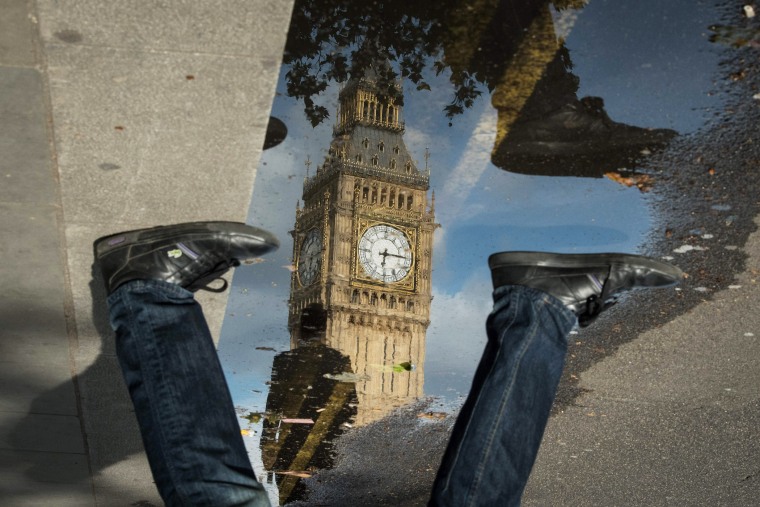As the dust settled on the United Kingdom's "Brexit" vote, it wasn't long before observers started noticing that the Leave campaign succeeded thanks to some pretty brazen falsehoods. For example, Leave proponents repeatedly told voters that the country would save 350 million pounds a week by parting ways with the European Union -- money that could be used to bolster the National Health Service.
It was therefore of great interest yesterday when
The Guardian published
this report on insurance multi-millionaire Arron Banks, described as the "Brexit campaign's biggest financial donor," who shared some insights on his political tactics.
Banks has been credited with professionalising Ukip's referendum push through the Leave.EU campaign. He deployed senior executives and staff from his insurance companies and hired the Washington DC political campaign strategy firm Goddard Gunster on a multimillion-pound fee to sharpen its message. "It was taking an American-style media approach," said Banks. "What they said early on was 'facts don't work' and that's it. The remain campaign featured fact, fact, fact, fact, fact. It just doesn't work. You have got to connect with people emotionally. It's the Trump success."
When we talk about exporting American values around the world, this really isn't what we're referring to.
This is not to say the admission comes as a total surprise. The week before the vote,
The Telegraph published
this column on the fact that every major economic institute in the U.K. concluded that leaving the E.U. would be a mistake.
Experts. Authorities. Specialists. People who know stuff. Should we listen to them? Or dismiss them out of hand as a load of stuck-up swots who think they know better than the rest of us, just because they know better than the rest of us? It's a difficult question. So thank goodness for Michael Gove. On Friday night, during an interview on Sky News about the EU, Faisal Islam challenged the Justice Secretary to name a single independent economic authority that thought Brexit was a good idea. Mr Gove's response was defiant. "I'm glad these organisations aren't on my side," he said. "I think people in this country have had enough of experts."
Obviously, this is a classic example of anti-intellectualism, but
it's also oddly familiar language to anyone who's ever seen congressional Republicans try to defend their post-policy agenda.
Is this really what we're exporting? Assurances that "facts don't work," "the Trump success" is a model worthy of emulation, and subject-matter experts are better left ignored?
